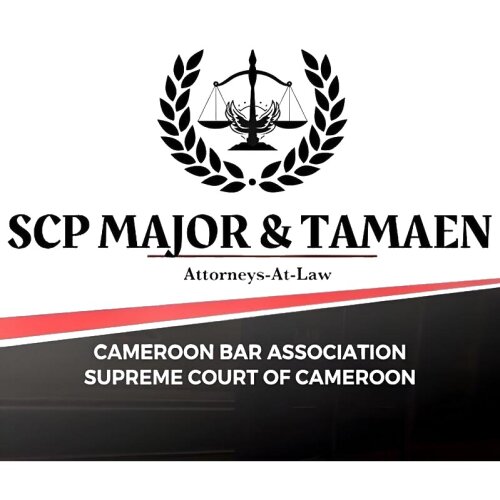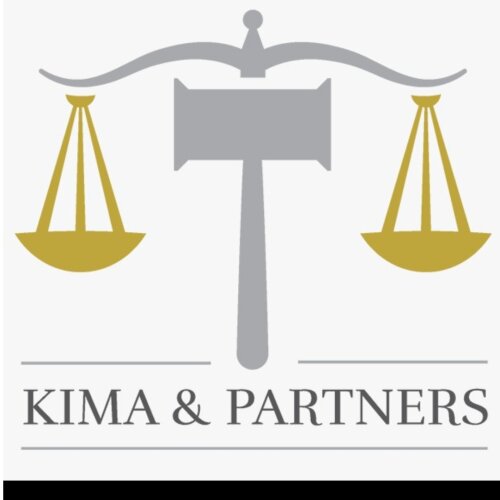Best Public-Private Partnerships (PPP) Lawyers in Yaoundé
Share your needs with us, get contacted by law firms.
Free. Takes 2 min.
List of the best lawyers in Yaoundé, Cameroon
About Public-Private Partnerships (PPP) Law in Yaoundé, Cameroon
Public-Private Partnerships, known as PPPs, are collaborative arrangements between government entities and private sector participants aimed at financing, developing, managing, or maintaining infrastructure and public services. In Yaoundé, Cameroon, PPPs have become an essential tool for addressing infrastructure gaps, boosting economic growth, and improving the delivery of public services such as transport, energy, water supply, and health facilities. Typically, a PPP project involves the private sector taking on significant risks and responsibilities, often through long-term contracts, in exchange for future returns.
Why You May Need a Lawyer
Entering into or managing a PPP project can be legally complex. Here are some common situations where legal assistance is vital:
- Drafting, negotiating, or reviewing PPP contracts and related agreements
- Understanding and complying with local PPP regulations and tender processes
- Navigating disputes or disagreements between partners
- Addressing concerns related to land acquisition, permits, and government approvals
- Managing regulatory compliance, risk allocation, and mitigation requirements
- Structuring finance arrangements and securing bankability for PPP projects
- Advising on tax implications and incentives specific to PPPs
- Providing representation before regulatory bodies or dispute resolution forums
A lawyer with experience in PPP law in Yaoundé helps protect your interests, ensures compliance, and increases the likelihood of successful project outcomes.
Local Laws Overview
Public-Private Partnerships in Yaoundé operate under a specific legal and regulatory framework established to encourage private sector participation in public infrastructure and service delivery. The Cameroonian government adopted a comprehensive PPP law in 2006, which provided the legal basis for PPP projects. Key features of the framework include:
- PPP Law No. 2006/012 of December 29, 2006: This law defines PPPs, sets out PPP models, and establishes procedures for project selection and implementation.
- PPP Regulatory Agency (CARPA): The Council for the Regulation of Public-Private Partnerships oversees the compliance, transparency, and effectiveness of PPP initiatives.
- Tender Procedures: Projects typically undergo a competitive bidding process to ensure transparency and best value for the public sector.
- Risk Allocation: Contracts clearly allocate risks between public and private parties, which encourages investor confidence.
- Dispute Resolution Mechanisms: Legal avenues for commercial dispute resolution are available, including recourse to local courts and arbitration.
- Monitoring and Oversight: Regulatory bodies supervise project delivery to ensure public interests are safeguarded throughout the PPP lifecycle.
Additionally, PPPs in Yaoundé must align with national development goals and comply with sector-specific regulations and environmental standards.
Frequently Asked Questions
What is a Public-Private Partnership (PPP) in Cameroon?
A PPP involves a formal collaboration where the private sector finances, constructs, operates, or maintains public projects under agreed terms with the government. In Cameroon, PPPs are governed by laws aimed at promoting private sector involvement in infrastructure and public service delivery.
Who regulates PPP projects in Yaoundé?
PPP projects are primarily regulated by CARPA, the Agency for the Regulation of Public-Private Partnerships, which ensures compliance with national laws, contractual transparency, and oversight of project execution.
What types of projects are commonly implemented as PPPs in Yaoundé?
PPPs are frequently used for infrastructure such as roads, bridges, airports, water treatment plants, energy projects, housing developments, and health facilities.
What are the main steps to launching a PPP project?
Typical steps include project identification, feasibility studies, tendering, contract negotiation, financing arrangements, approval by regulatory authorities, and ongoing monitoring after contract award.
Do PPP agreements require public tendering?
Most PPP projects are subject to competitive public tendering to promote transparency, fair competition, and value for money, but exceptions can apply in certain cases as defined by law.
How are disputes in PPP projects resolved?
Disputes may be handled through negotiation, mediation, arbitration, or litigation in Cameroonian courts, as outlined in the PPP contract or local regulations.
What risks are typically transferred to the private sector in a PPP?
Risks such as project design, construction, operational risks, maintenance, and in some cases, demand or revenue risks are often shifted to the private party, depending on the contract structure.
Are foreign investors allowed to participate in PPPs?
Yes, foreign investors are welcome to participate in PPP projects in Cameroon, often through joint ventures or consortiums, provided they comply with national investment laws and regulations.
How can I find current PPP opportunities in Yaoundé?
PPP opportunities may be listed by relevant governmental departments, CARPA announcements, or through public procurement platforms. Legal counsel can assist in identifying and pursuing such opportunities.
What are the main challenges in developing PPPs in Yaoundé?
Challenges include navigating complex regulatory requirements, securing financing, risk management, land acquisition, obtaining necessary approvals, and ensuring stakeholder alignment.
Additional Resources
If you are seeking legal guidance or more information about PPPs in Yaoundé, consider consulting the following:
- The Agence de Régulation des Partenariats Public-Privé (CARPA) for regulatory guidance and project listings
- Ministry of Public Works and relevant sector ministries for sector-specific PPP initiatives
- Investment Promotion Agency of Cameroon for information on incentives and investment norms
- Local business chambers or legal professional associations for contacts with experienced lawyers
- International development agencies such as the African Development Bank, which sometimes support PPP capacity-building and financing
Next Steps
If you require legal assistance with a PPP in Yaoundé, consider taking the following actions:
- Identify your project objectives and the PPP model you are interested in
- Collect all relevant documentation, such as feasibility studies, business plans, and financial data
- Research and reach out to a qualified lawyer or law firm with experience in PPP law in Cameroon
- Prepare a list of questions detailing your project-specific concerns or contractual needs
- Schedule a consultation to discuss case-specific risks, regulatory requirements, and compliance strategies
- Engage your legal advisor early to help with contract drafting, negotiation, due diligence, and regulatory applications
Taking these steps will help protect your investment, ensure legal compliance, and enhance the success of your PPP venture in Yaoundé.
Lawzana helps you find the best lawyers and law firms in Yaoundé through a curated and pre-screened list of qualified legal professionals. Our platform offers rankings and detailed profiles of attorneys and law firms, allowing you to compare based on practice areas, including Public-Private Partnerships (PPP), experience, and client feedback.
Each profile includes a description of the firm's areas of practice, client reviews, team members and partners, year of establishment, spoken languages, office locations, contact information, social media presence, and any published articles or resources. Most firms on our platform speak English and are experienced in both local and international legal matters.
Get a quote from top-rated law firms in Yaoundé, Cameroon — quickly, securely, and without unnecessary hassle.
Disclaimer:
The information provided on this page is for general informational purposes only and does not constitute legal advice. While we strive to ensure the accuracy and relevance of the content, legal information may change over time, and interpretations of the law can vary. You should always consult with a qualified legal professional for advice specific to your situation.
We disclaim all liability for actions taken or not taken based on the content of this page. If you believe any information is incorrect or outdated, please contact us, and we will review and update it where appropriate.











